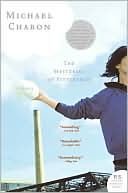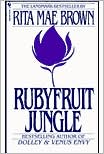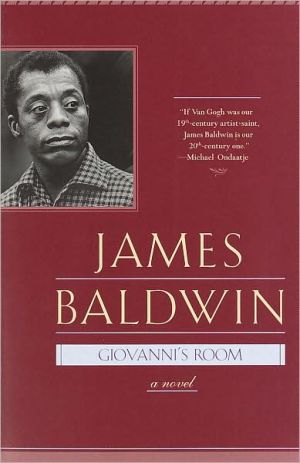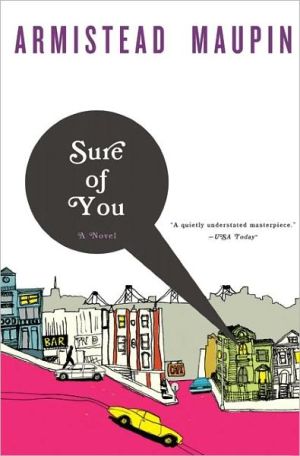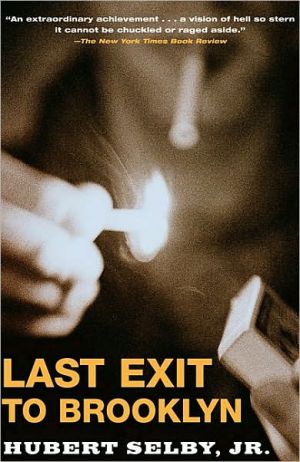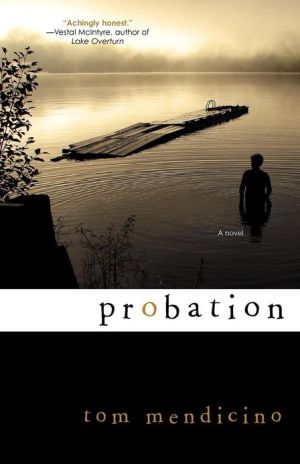Tea
On a spring day in 1968, eight-year-old Isabel Gold prepares tea for her mother, certain she will drink it and recover from her mysterious sadness. But the tea remains untouched. Not long after, her mother takes her own life.\ Struggling to understand the ghost her mother left behind, Isabel grows up trying on new identities. Her yearning for an emotional connection finds her falling in and out of love with various women, but it is not until Isabel learns how to reach deep within herself that...
Search in google:
The Golds were not an exceptional family in suburban Philadelphia. Mr. Gold ran a dry-cleaning business, and his wife, Cassie, was a nurse. They had two daughters, Isabel and Jeannie. Mrs. Gold was unpredictable and moody, prone to napping and taking long baths, but it was nothing that couldn't be soothed with a good cup of tea. Until she killed herself. Haunted by her mother's incomprehensible act, Isabel Gold tests out identity after identity, role after role, trying to inhabit the space left by Cassie and to crack the mystery of her death. Tea tells Isabel's story as she yearns to become an actress and falls in and out of love: at eight, with born-again Ann; at sixteen, with the self-assured Lottie, listening to Joni Mitchell records and smoking dope; at seventeen, with theatrical, feminist Rebecca; and at twenty-two, with avant-garde Thea, in whose experimental film Isabel is starring. Darkly poignant, sincerely funny and erotic, Tea is about struggling to carve out a space for oneself against a calamitous family history.San Francisco ChronicleIntimations of greatness....Written with a strength and daring that makes it a breathtaking pleasure.
On Saturday, they found a house. They drove far past Philadelphia, into the country, the newspaper with the circled ad between them on the seat, the radio playing. On the news, the talk was of Vietnam.\ "Will Dad have to go in the army?" asked Isabel.\ "No," said her mother. "He has a family." A wide headband held her hair back, and she had pushed her sleeves up as she drove. She sipped from the mug of tea she always brought with her in the car. She seemed almost happy, as the countryside spun by. "This is like where I grew up," she said. "Look for cows, Isabel."\ Isabel counted several cows, not a single one walking anywhere. They turned down a road, then another, passed a little store, then rumbled onto a road that led to the top of a hill, where the house was. The agent's name was Madge, and she met them at the peeling front door, seeming cheery. Everything about Madge was wrinkled except her feet, which were beautiful in white slingbacks. She led them around, pointing things out in her raspy voice. She was skinny as a piece of celery.\ The house wasn't particularly nice, in Isabel's opinion. There was an enormous water stain cascading down the living room wall, and the kitchen wallpaper was peeling. Pairs of boots of different sizes sat up on a muddy shelf in the kitchen, close to the floor. The living room was full of books stacked up like firewood, none on shelves. There was an intriguing small door cut into the side of the staircase. Isabel rattled the handle, but it wouldn't open.\ Madge sent them up the steep wooden stairs alone. "You break it, you buy it!" she rasped out, then laughed a deep laugh, as if she had told a very hilarious joke indeed. Isabel wanted to tell Madge how stupid that was, that they weren't going to break anything, but didn't, following her mother up the stairs.\ "Oh, look at this," her mother said when they reached a narrow room with a painted floor and a small desk set all by itself in the middle, like an island. Against one wall was a mattress on the floor, covered by a chenille bedspread. From the desk, out the odd, oblong window, Isabel could see a field. In the field, there was a car up on cinder blocks. All its doors were gone. There wasn't anything else in the room but the bed, the desk, the desk chair, and the window with the field and the car in it. Beyond the car, the land sloped and fell away into woods. Isabel, squinting, took a picture of it with her mind so she could think about it later.\ Isabel's mother sat down at the desk; her knees didn't quite fit under it. She lifted the lid.\ "Mom," said Isabel.\ "I'm just peeking," she said. Inside, there were maps, a messy notebook, pens, pencils, some thread. A yo-yo. A book about the birds of South America. "They must travel," said Isabel's mother, opening to a photograph of a bright lime-green bird that seemed to be hugely tall, with bulging eyes. "The people here travel." The bird's eye bulged unpleasantly at Isabel.\ Isabel sat down at the very edge of the mattress. Why, she wondered, was there no furniture in this room besides the bed, the little desk, and the matching chair? "Are we near Springston?" she said.\ "Springston?" said Isabel's mother, dropping the lid back down with a hollow bang. She leaned back in her chair, stretching out one long leg. "We're not moving to Springston. That's your father's big idea. What do you think of this house?"\ "It's okay," said Isabel. She passed her hand over the country of the bedspread. There were the mountains. There was the sea. There was a farm where she lived with her friend Ann. "Mom. Have you heard of The Doors?"\ She wrinkled her forehead. "Who?"\ "The Doors. It's a group."\ "Chiggy-wiggy music?"v "Yes," Isabel giggled.\ "What kind of group?"\ "I just told you. Rock-and-roll music. They're really good."\ Her mother was quiet for a minute. Her lime-green bird mood seemed to have passed suddenly. She leaned her head in her hand at the little desk. Her two rings shone in her hair. "You know, Isabel," she said, "sometimes I want to die."\ Isabel retied a shoelace, light-headed. The room seemed to get brighter for an instant, then faded to normal again. Maybe that was a sunspot. The sea roiled as the sunspot blazed, overturning a ship sailing over the sea past the farm where she and Ann lived. "Why?" she said, staring at the sea.\ Isabel's mother pressed her long fingers into the corners of her eyes, squeezed her eyes shut, shaking her head. "I just do," she said. "I just want to die."\ Isabel flicked the farm off the planet. "I don't know what you're talking about," she said, and she tried to sound cold, like a cold girl in a book. "It's Saturday. We're looking for a new house. You drove us here in our car. You'll drive us back. It isn't that hard."\ Isabel's mother shook her head again, as if in response to a silent question. She looked like a stranger to Isabel for a moment, and that was worse than seeing her get upset. "How would you know what's hard?" she said quietly, her dark blue eyes wet, turning in the small chair to face Isabel. "How would you know, Isabel?"\ Isabel had no reply. She picked at the chenille bumps, which were in a feather outline. What town were they in, then, she wondered, if they weren't in Springston. Several minutes went by. Isabel's mother stood up, and looked out the window.\ "Hey," called Madge from downstairs. "Look out that window. Do you see the rosebushes?"\ "Madge," said Isabel's mother loudly. "I'm in love with this house. It's perfect. What are they asking?" She turned around, no longer crying, and gave Isabel the little pinch that meant I'm back.\ Madge came up the stairs, slingbacks making a fast Morse code Isabel couldn't quite read. "Twenty-five," she said, lighting up a cigarette and opening the window. "They'd probably take less."\ "Oh, let me sneak a puff," said Isabel's mother.\ Madge handed her the pack. "I've gotta quit anyway."\ "Who lives here?" said Isabel.\ "Renters," said Madge. "Three or four girls all live out here together. Hippies. One of them's a mechanic, if you believe that. The owners are in Florida."\ "A lady mechanic?" said Isabel's mother, blowing smoke up into the air.\ Madge shrugged, tapped her ash out the window. "She's the only one I've dealt with. Big friendly girl."\ Isabel stood up. "How are the schools?"\ Madge laughed, exhanging a glance with Isabel's mother, who shrugged. "The schools?" said Madge. "They're all right, honey." She stubbed out her cigarette on the windowsill, closed the window. "They're just fine."\ Isabel decided that she would never smoke as long as she lived. "I'd like to see the rosebushes, Madge," she said.\ The three of them went back down the loud wooden stairs, Isabel in the lead, the winner. Outside, on the tilting porch, there was an orange cat with one chewed ear.\ "What's his name?" said Isabel.\ "Kitty," said Madge. Isabel, despising Madge, resolved to be superpolite to her for the rest of the day.\ Madge walked them through the backyard, proudly pointing out the rosebushes, which were little more than a few stringy bundles of thorns. "How lovely," said Isabel loudly to Madge.\ They walked past the car, Madge, in her slingbacks, giving it a wide berth. "They'll take that with them," she said. Isabel peered at the car, wondering if there was anything interesting left in the glove compartment. She attempted to excavate it with X-ray vision, but nothing happened. These people, she thought, were poor, and not nearly as smart as the Romans, who built aqueducts.\ The March air tipped all of their noses with red as they walked, bit their cheeks. The marks of Isabel's mother's tears faded away into a general flush. She put her arm around Isabel, and Isabel held her breath. Then she couldn't help it. She moved closer, hard. "Whoa," said her mother, stumbling. They walked together into the wind, awkwardly, hip to hip. Isabel noticed that her head was not so far from her mother's shoulder when they stood side by side. She would be so much taller than her mother when she grew up. Isabel put her hand in her mother's pocket and felt crumpled Kleenex, some change. A quarter, a nickel, she figured out. Two pennies. From the yard, Isabel could see the peaked window of the room that would be hers, because this was going to be their house, and they were all going to live there, and paint it over. Isabel's room had eaves. Jeannie's room didn't. From her window, Isabel would look out over the yard and muse on the empty car until she grew up, and moved away.\ Sitting in the living room, in chairs covered with Indian print bedspreads, Isabel's mother discussed prices and taxes and land with Madge. The book on the top of the stack nearest to Isabel was called The Diary of Anais Nin, 1931-1934. Isabel began reading it, but the person didn't seem to have any friends, so she put it down, bored. The house came with fifty acres, Madge informed them, and Isabel's mother said that they could have a pool, back in the forest, down a path. Isabel and Jeannie would learn to swim. She stretched her arms over her head. "I just feel right about this one," she said. Isabel noticed a stain on the Indian print bedspread her chair was covered in, and wondered what had made it. The stain was the shape of Texas, more or less.\ When was it, Isabel thought later, much later, long after her mother was dead and she herself had grown up and moved away, and visited Philadelphia only reluctantly-when was it that she began to feel so full of dread? When, in other words, did she know? She knew that the exact answer hardly mattered. She knew that the exact answer was from the beginning and never. She knew that her question was really a screen for a deeper and more troubling question, which was, When could her mother have been saved? Again, the answer was at the beginning and never.
\ From Barnes & NobleTea \ When we first meet Isabel Gold, the heroine of Tea, Stacey D'Erasmo's debut novel, it's 1968 and she and her mother are house hunting near Philadelphia. In one house, they sit in an upstairs bedroom and eight-year-old Isabel admonishes her mother for opening a desk drawer. They chat a bit, then "[H]er mother was quiet for a minute.... 'You know, Isabel,' she said, 'sometimes I want to die.'"\ It's a dramatic start to a disturbing book that traces Isabel's coming of age after her mother's suicide. D'Erasmo -- a former editor of the Village Voice Literary Supplement and a recent recipient of a Stegner Fellowship in Fiction at Stanford University -- breaks TEA into three sections, "Morning," "Afternoon," and "Evening." "Morning," the shortest and strongest section of the book, includes the suicide, which occurs "offstage" a month after the visit to the house. As Isabel remembers, "When her mother finally did it, she did it at the hospital where she worked, locking herself in a supply closet with a vast amount of pills, as if to say: This is the size of my hunger."\ In the novel's first 50 pages, D'Erasmo uses original, specific details to create a rich portrait of the troubled Gold family. Cassie, Isabel's mother, is mysterious yet larger than life. "In the afternoons, she was dreamy and distracted, like someone floating on a lake. The sofa was her afternoon raft...surrounded by her chipped glass of what she called her afternoon tea, though the tea was always cold." Isabel's father, a dry cleaner, "was pale, from being in the store all the time. As always, his hair was precisely parted, with exact comb marks." Obsessed with dogs, Jeannie, her younger sister, "had a multicolored collection of puppies, stuffed animals, who lived in a plastic princess castle...puppies crowded at the windows, reclined on the turrets, and were half-stuffed by their back legs down the chimneys."\ In "Afternoon," Isabel is 16 and lives in a Philadelphia suburb called Springston. Alienated from her father and sister, Isabel divides her time between working at Pier 1 and hanging out with her best friend, Lottie, sunbathing and listening to Joni Mitchell. She breaks from the suburban summer routine when members of an avant-garde theater group from the city arrive at Pier 1 one day looking for props. Soon, drawn to the group's stage manager, Rebecca, Isabel begins volunteering at the theater and takes part in a production of "Equus," playing a horse decked out in a silver costume. Isabel has notions of being an actress -- it was her mother's aspiration as well -- but her connection with the theater focuses more on the people than on the art. By the end of "Afternoon," Isabel and Lottie have stopped speaking to each other; more importantly, Isabel discovers her attraction to women -- specifically Rebecca, with whom she has a brief encounter.\ Jump to "Evening," and 22-year-old Isabel's settled in New York, on the Lower East Side, with her girlfriend, Thea. Recent college graduates, they aspire to make a film together, though Isabel works a day job at an arts foundation. "Evening" bogs down a bit with details concerning the film and the relationship between Isabel and Thea -- who never fully takes shape. Later in the section, when the narrative returns to Isabel's memories of her mother and sends Isabel home for Hanukkah, Tea fulfills the promise of its first 50 pages.\ Back in Springston for the holiday, Isabel re-enters the house her father and sister, who now works in the dry-cleaning business, share with half a dozen dogs. In one pivotal scene, Isabel sorts through old trunks of her mother's possessions, searching for clues, only to find that "even unwrapped after so many years and laid out around the attic, the things she left behind didn't explain anything." Yet, remembering the day she and her mother went house hunting, Isabel realizes, "It was wrong; it was the wrong thing to say to a child, that you wanted to die."\ Indeed, D'Erasmo's writing is most compelling when she focuses directly on Isabel's loss: "Cassie Gold settled into the floorboards, stood before the window, sat in all the chairs, like someone who never went to work." And Isabel is most sympathetic when she allows herself to miss her mother, as when she eats a solitary lunch of rice and beans and tries to imagine what her mother would have given her on her birthday.\ Tea is a quiet book. D'Erasmo doesn't offer Isabel a miraculous breakthrough that leads to a grand, happy ending. Instead, she travels slowly toward a guarded reconciliation with the past -- and the prospect of moving forward, lighter and freer, into adulthood.\ —Abby Tannenbaum\ \ \ \ \ \ Dennis DrabelleStacey D'Erasmo's first novel, Tea, is divided into three parts, each of which presents a literary snapshot of Isabel Gold, the daughter of a Philadelphia dry cleaner and his frustrated wife. The first picture, which shows Isabel at age 8 or 9 in the late '60s, is the best -- a funny and charming portrait of a kid who is both knowing and naive. She picks up a volume of Anais Nin's self-besotted Diary but puts it down after observing that the writer "didn't seem to have any friends." Accompanying her mother on a tour of a house the family might buy, Isabel decides that the messy occupants are "poor, and not nearly as smart as the Romans, who built aqueducts." Along with the cleverness, however, comes a sense of foreboding. Isabel's mom tells the girl that sometimes she wants to die, and soon enough she does, by her own hand.\ In the second section, Isabel, now 16, hangs out with two friends who are sleeping together, listens to a lot of Joni Mitchell records and tries to make sense of her mother's death. One tactic she adopts is getting involved in the theater -- her mother had chucked a fledgling acting career to marry Isabel's father. Isabel approaches drama in a roundabout way, first volunteering backstage at a local little theater, then letting herself be drafted to play one of the horses in Equus. By this point she is beginning to realize that she is a lesbian.\ The third section finds her, at 22, involved with a woman named Thea, not just in a love affair but in an experimental-film project in which Isabel is to play the goddess Diana, wielding bow and arrow. The co-creators' relationship betrays signs of trouble: When Thea asks whether Isabel wants them to be "nonmonogamous," Isabel replies, "Not this second"; and when Cricket, a new friend of Thea's, tries to horn in on the cinematic planning, Isabel reacts stormily.\ There is much to admire in Tea. The dialogue is frequently artful, and Isabel's take on the world is slanted and witty. At home with her family for Hanukkah, she joins them in watching the local news, "which seemed to her to have a charmingly flawed, handmade quality." The minor characters are vivid, especially the other Golds. Isabel's younger sister, Jeannie, collects dogs, of which she has half a dozen when last seen, all living in and around the family house, which she shares with their dad. As for him, his passion for dry cleaning recalls the Swede's love affair with glove-making in Philip Roth's American Pastoral.\ But D'Erasmo lacks Roth's fire and zeal and ability to persuade readers that a family's history can harbor deep American truths. Her novel's diction is spare (we're on the outskirts of Greater Minimalistville here); the jumps from section to section -- and from one stage of Isabel's life to the next -- leave too many characters dangling; and the question of how Isabel will cope with her mother's death is never satisfactorily resolved. Line by line, D'Erasmo is a talented writer, but a firm sense of construction is not yet one of her strengths. For all its flashes of humor, Tea left me yearning for an infusion of caffeine.\ — Salon\ \ \ \ Maureen CorriganTea's satisfying taste lingers.\ — NPR\ \ \ \ \ Michael CunninghamTea is a pure and profound book; a ravishing book. After I'd finished reading it I couldn't start reading anything else for a while--it just didn't seem necessary. Stacey D'Erasmo is, simply, the real thing, and this book is a work of art.\ — author of the 1999 Pulitzer Prize winner, The Hours\ \ \ \ \ New York Times Book ReviewAn unpretentious, muddle-free first novel....\ \ \ \ \ NewsdayFlawless.\ \ \ \ \ San Francisco ChronicleIntimations of greatness....Written with a strength and daring that makes it a breathtaking pleasure.\ \ \ \ \ Publishers Weekly\ - Publisher's Weekly\ In her wry, sensitive first novel, D'Erasmo, a former editor at the Voice Literary Supplement and Bookforum, charts the crucial moments of young Isabel Gold's coming of age before and after the suicide of her mother. The protagonist and her sister, Jeannie, live with their parents in a Philadelphia suburb. Isabel's father runs a dry-cleaning business and her mother, Cassie, runs off to New York to see musicals or stays home glued to the soaps while drinking whisky from a teacup. As a young girl, Isabel studies the ancient Romans and sees her family life as bits of evidence for future archeologists looking for clues. While Isabel observes her mother's fragile state, the narrative follows Isabel's maturation--her teenage friendship with the blonde sylph, Lottie, and Lottie's boyfriend, Ben; her first love affair with a woman, whom she meets at a community theater; and her wrenching first heartbreak. Isabel's mother's suicide takes place offstage, and D'Erasmo reveals how and when the memories of her mother's life and death insinuate themselves into Isabel's consciousness. Punctuated by moments that are radiantly moving (every year Isabel imagines the gift her mother would give her for her birthday) or hilarious (Isabel's childhood friend, playing Get Smart, calls God on the shoe phone), D'Erasmo's tale eschews labels, politics and generalizations. Hers is an intimate story, suffused with irony, humor and a close, sensuous attention to physical detail. Isabel's world opens up generously, providing the reader with the intimate truths and emotional complexity that make this impressive debut unforgettable. Copyright 1999 Cahners Business Information.\ \ \ \ \ Library JournalThrough three chapters titled "Morning," "Afternoon," and "Evening," the young life of Isabel unfolds from grade school to high school to barely beyond college. This sensitively told coming-of-age story is about a girl who loses her mother early to suicide and who consequently drifts through relationships with family and friends toward an eventual and painful self-discovery. Although Isabel appears tough and even defiantly untouched by her mother's death, questions concerning the unfathomable and final nature of such an act haunt her. Each chapter also features Isabel's ties to a best girlfriend--but some of these narrative threads are cut off without explanation. For example, in the second chapter, Isabel's increasing attraction to a young woman seems significant in that it leads her confidently to lesbian love, but the final chapter, having jumped forward in time, makes no mention of her, leaving the reader to wonder what happened. On the whole, this well-written, intriguing, if somewhat frustratingly unformed first novel by former Stegner fellow D'Erasmo is recommended for large fiction collections.--Sheila M. Riley, Smithsonian Inst. Libs., Washington, DC Copyright 1999 Cahners Business Information.\ \ \ \ \ B WrightTea, Stacey D'Erasmo's closely observed first novel, leaves the reader with the hyper self-awareness one feels after seeing a film intensely focused on one or two characters: In the afterglow, you stand up, walk, take a pee, conscious of every movement and somehow distant from it, as if you too were an actor embraced by a bright eye.\ —The Village Voice\ \ \ \ \ Gail PoolIn Tea, a first work by Stacey D'Erasmo,...all the elements we expect in a coming-of-age novel are present. But D'Erasmo also provides that crucial element of difference: this is the story of a particular young woman's struggle to understand and move beyond her mother's suicide...This is a difficult story to tell without melodrama, but D'Erasmo succeeds. Understatement helps, as does an eye for the comedy life delivers—in Isabel's young friend Ann, who has been reborn at Bible camp and takes "Jesus with her everywhere, even to the bathroom,' or in Isabel pretentiously describing her feminist film about the goddess Diana to her father's future wife, who persists in thinking it is about Princess Di...Unlike so many novels, Tea ends well. Its conclusion is satisfying, even uplifting, but not sentimental.\ —The Women's Review of Books\ \ \ \ \ The New YorkerBarbed with bitter humor...memorable...\ \ \ \ \ Anastasia Higginbotham...D'Erasmo's beautiful prose is especially effective. Any reader who has felt both lost and found in the space between straight and gay will be moved by the achingly charming depiction of Isabel coming out.\ —Ms.\ \

